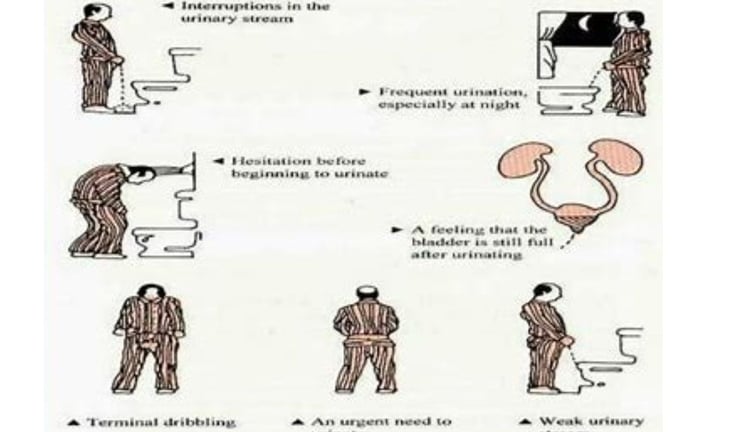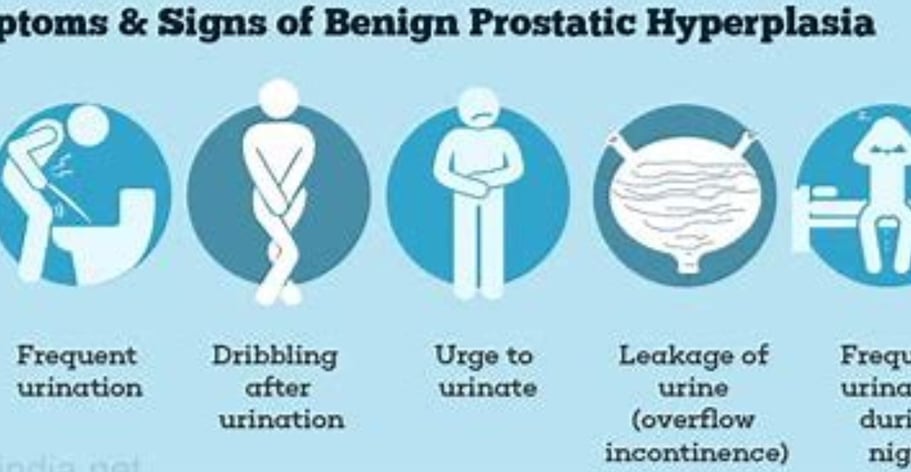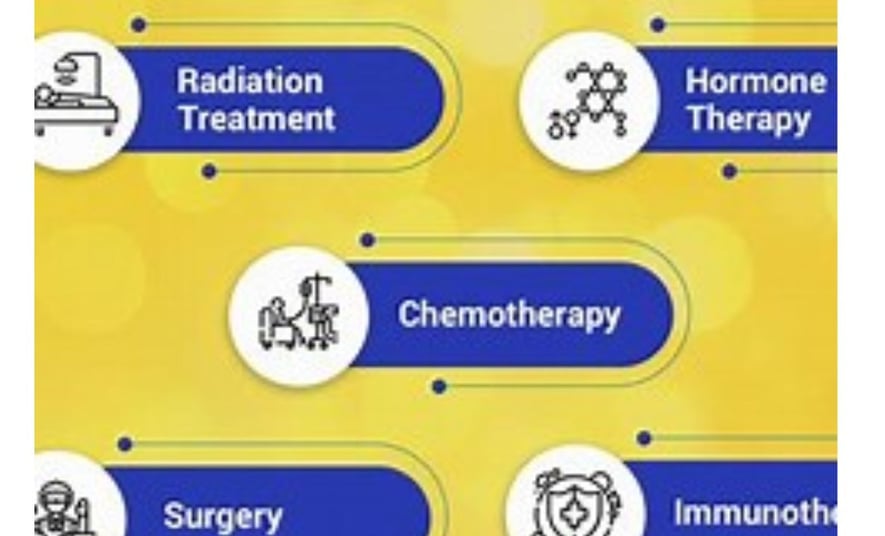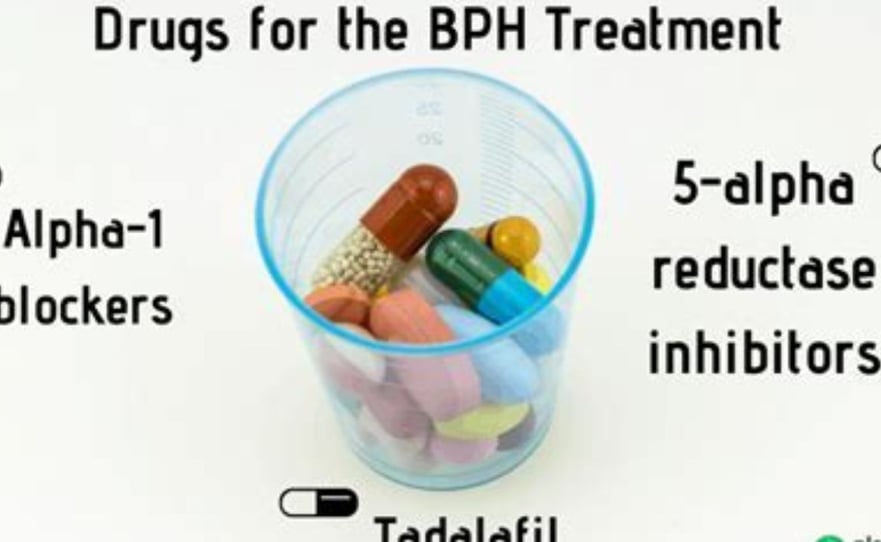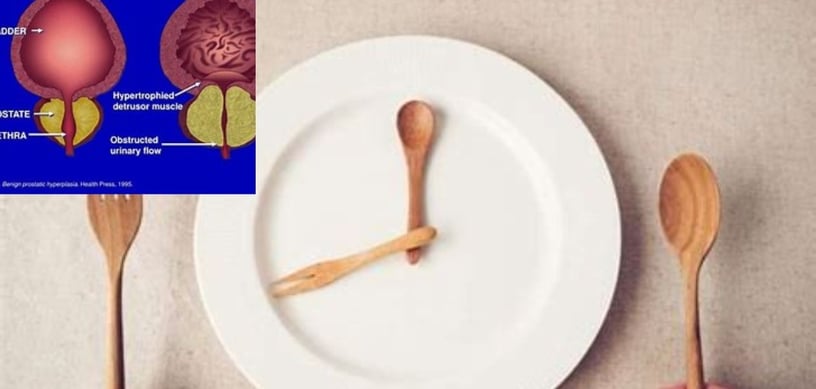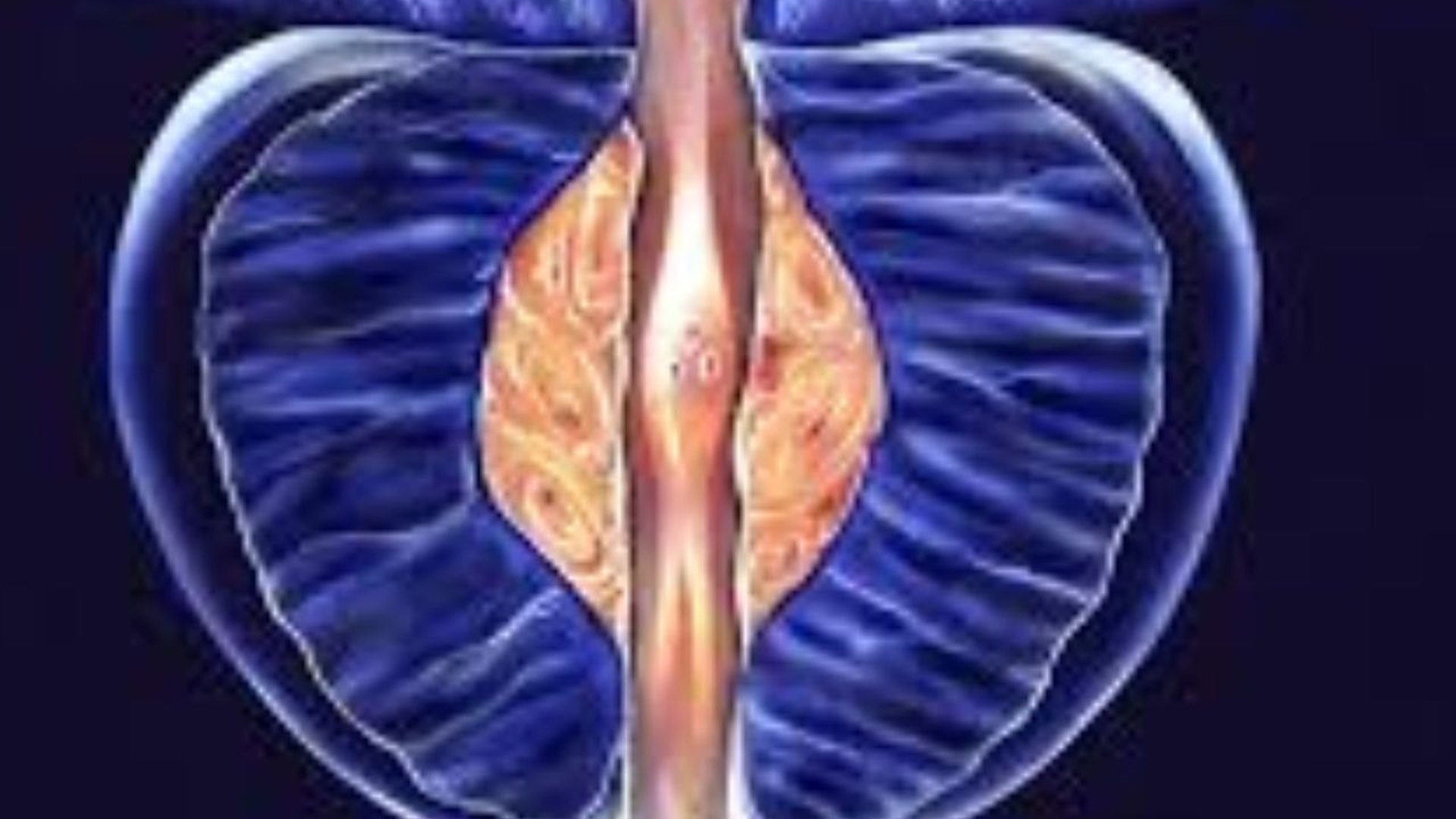
Benign Prostatic Hyperplasia (BPH): Fasting and Honey
Learn about the causes, symptoms, and treatment options for benign prostate hyperplasia (BPH) and chronic constipation. Explore the impact of fasting, blood sugar, alcohol, smoking, exercise, and r...
PROSTATE
Dr Hassan Al Warraqi
9/23/2023


Benign Prostate Hyperplasia: Causes, Symptoms, and Treatment Options
benign Prostate Hyperplasia (BPH) is a common condition that affects a significant number of men, especially as they age.
It is a non-cancerous enlargement of the prostate gland that can cause urinary and sexual problems.
Understanding the causes, symptoms, and treatment options for BPH is crucial in managing and improving the quality of life for those affected.
In this essay, we will discuss the causes, symptoms, and treatment options for BPH in detail.
the cause
The exact cause of BPH is unknown, but several factors have been identified to contribute to its development.
Age-related hormonal changes, particularly the increase in dihydrotestosterone (DHT) levels, play a significant role in the development of BPH.
Family history is also a contributing factor, as men with a family history of BPH are more likely to develop the condition.
Lifestyle factors such as diet and exercise have also been linked to the development of BPH. For example, a diet high in red meat and fat has been associated with an increased risk of BPH.
symptoms
the symptoms of BPH can vary from person to person, but the most common ones include
urinary problems,
bladder problems, and
sexual problems.
Urinary problems include frequent urination, weak urinary stream, and difficulty starting or stopping urination.
Bladder problems such as urinary incontinence and urinary tract infections can also occur.
sexual problems such as erectile dysfunction and reduced libido can also be experienced by men with BPH.
treatment
There are several treatment options available for BPH, depending on the severity of the condition and the symptoms experienced.
For mild cases, watchful waiting or active surveillance may be recommended, where the patient is monitored for any changes in symptoms.
Medications such as alpha-blockers and 5-alpha reductase inhibitors can also be prescribed to relieve symptoms.
These drugs may have side effects such as dizziness, low blood pressure, sexual dysfunction, and increased risk of prostate cancer
surgery
In more severe cases, minimally invasive procedures such as transurethral microwave thermotherapy and laser therapy can be used to remove or reduce the size of the prostate gland.
conclusion
In conclusion BPH is a common condition that can significantly impact the quality of life of those affected.
Understanding the causes, symptoms, and treatment options for BPH is crucial in managing the condition and improving the quality of life for those affected.
Age-related hormonal changes, family history, and lifestyle factors such as diet and exercise are the main causes of BPH. The symptoms of BPH can vary from person to person,
but the most common ones include urinary problems, bladder problems, and sexual problems.
Treatment options for BPH include watchful waiting, medications, and minimally invasive procedures.
It is essential to seek medical advice if you experience any symptoms of BPH to manage the condition effectively.
reduced red meat intake important in prevention
white meat fish and seafood should replace the red meat consumption
fasting
fasting of any kind especially Islamic very crucial
key words
fasting ,BPH ,chronic constipation ,blood sugar ,alcohol , smoking , exercise , risk factors ,reduced red meat intake important in prevention,white meat fish and seafood should replace ,the red meat consumption,
Benign Prostatic Hyperplasia (BPH): Fasting and Honey
This summary provides a detailed overview of benign prostatic hyperplasia (BPH) based on various Arabic sources,
covering its definition, symptoms, causes, risk factors, diagnostic methods, treatment options, and differentiation from conditions like prostate cancer and prostatitis, with a focus on the potential roles of fasting and honey.
Definition
Benign prostatic hyperplasia (BPH) is a common condition in older men characterized by non-cancerous enlargement of the prostate gland, which compresses the urethra and bladder, leading to urinary difficulties.
The prostate, located below the bladder and surrounding the urethra, secretes fluid that forms part of semen.
Its normal size is approximately 25 grams, but it enlarges with age.
Symptoms
BPH symptoms vary in severity and include:
Difficulty initiating urination and weak or intermittent urine flow.
Frequent urination, especially at night (nocturia).
Feeling of incomplete bladder emptying and post-void dribbling.
Urgent need to urinate and prolonged urination time.
In severe cases: complete urinary retention with lower abdominal pain.
Causes and Risk Factors
Hormonal Changes: Age-related imbalances between testosterone and estrogen stimulate prostate growth.
Age: Incidence increases with advancing age.
Genetic Factors: Family history elevates risk.
Diet: High-fat and red meat diets may increase risk.
Degeneration: Fibrosis of prostate muscle tissue contributes to enlargement.
Complications
If untreated, BPH may cause:
Urinary retention, urinary tract infections (UTIs), bladder stones, bladder or kidney damage, urinary incontinence, and occasionally blood in the urine.
Diagnosis
Medical History and Physical Exam: Digital rectal exam (DRE) to assess prostate size.
Prostate-Specific Antigen (PSA) Test: Measures blood protein levels.
Ultrasound: Evaluates prostate size and bladder condition.
Uroflowmetry and Cystoscopy: Assess urine flow and bladder/urethra condition.
Differentiation from Other Conditions
Prostate Cancer: Shares symptoms like difficulty urinating, but cancer may cause pelvic/back pain or loss of bladder control. BPH does not progress to cancer.
Prostatitis: A bacterial infection causing burning urination and fever, treated with antibiotics.
Treatment
Observation: For mild cases, with lifestyle changes like reducing caffeine and alcohol.
Medications:
Alpha Blockers (e.g., tamsulosin) relax prostate muscles.
5-Alpha Reductase Inhibitors (e.g., finasteride) shrink the prostate.
Tadalafil or combination therapy.
Minimally Invasive or Surgical Treatments:
Transurethral incision of the prostate (TUIP), transurethral resection of the prostate (TURP), microwave therapy (TUMT), or laser treatments.
Water vapor therapy (Rezum) or prostate artery embolization.
Open surgery for severe cases.
Impact of Fasting and Honey
Fasting may improve insulin sensitivity and reduce inflammation, potentially benefiting prostate health.
Honey contains antioxidants, but there is insufficient evidence to confirm their direct impact on BPH.
Consulting a doctor before fasting is essential.
Prevention and Tips
Maintain a healthy weight and exercise regularly.
Reduce caffeine and alcohol, avoid delaying urination, and limit fluids before bedtime.
Treat constipation, quit smoking, and avoid spicy foods.
Undergo regular check-ups after age 40.
Conclusion
BPH is a prevalent condition affecting older men’s quality of life.
Understanding its symptoms, causes, and available treatments facilitates effective management.
Men experiencing urinary symptoms should consult a doctor for accurate diagnosis and a tailored treatment plan.
Benign Prostatic Hyperplasia (BPH), Fasting, and Honey: A Brief Summary
BPH Overview:
Benign Prostatic Hyperplasia (BPH) is a non-cancerous enlargement of the prostate gland, common in aging men, causing urinary symptoms like frequent urination, weak stream, and incomplete bladder emptying.
Fasting and BPH:
Potential Benefits:
Fasting may reduce inflammation and oxidative stress, which contribute to prostate enlargement.
Intermittent fasting could improve metabolic health (e.g., insulin sensitivity), indirectly supporting prostate health.
Cautions:
Prolonged fasting without hydration may worsen urinary retention in severe BPH.
Always consult a doctor before fasting, especially if taking BPH medications (e.g., alpha-blockers).
Honey and BPH:
Anti-Inflammatory Properties: Raw honey contains antioxidants (e.g., flavonoids) that may reduce prostate inflammation.
Antimicrobial Effects: May help prevent urinary tract infections, a risk in BPH patients.
Limitations: High sugar content in honey could exacerbate metabolic issues if overconsumed.
Key Considerations:
No direct evidence links honey or fasting to curing BPH, but they may complement medical treatments (e.g., medications, surgery).
Prioritize hydration, a balanced diet, and doctor-approved lifestyle changes.
Bottom Line:
While fasting and honey may support prostate health indirectly, BPH management requires personalized medical care.
Always consult a urologist before adopting new regimens.
FAQs: Benign Prostatic Hyperplasia (BPH) - Fasting and Honey
1. What is Benign Prostatic Hyperplasia (BPH)?
Answer: Benign prostatic hyperplasia (BPH) is a common condition in older men where the prostate gland enlarges non-cancerously, pressing on the urethra and bladder, causing urinary difficulties.
The prostate, located below the bladder and surrounding the urethra, produces fluid for semen. Its normal size is about 25 grams, but it grows with age.
2. What are the symptoms of BPH?
Answer: Symptoms vary in severity and include:
Difficulty starting urination and weak or intermittent urine flow.
Frequent urination, especially at night (nocturia).
Feeling of incomplete bladder emptying and post-void dribbling.
Urgent need to urinate and prolonged urination time.
In severe cases: complete urinary retention with lower abdominal pain.
3. What causes BPH?
Answer: Causes include:
Hormonal Changes: Age-related imbalances between testosterone and estrogen stimulate prostate growth.
Age: Incidence increases with advancing age.
Genetic Factors: Family history elevates risk.
Diet: High-fat and red meat diets may increase risk.
Degeneration: Fibrosis of prostate muscle tissue contributes to enlargement.
4. How does fasting affect BPH?
Answer: Fasting may improve insulin sensitivity and reduce inflammation, indirectly benefiting prostate health.
However, there is insufficient evidence to confirm a direct effect on BPH.
Consulting a doctor before fasting is essential, especially for older adults or those with chronic conditions.
5. Can honey help treat BPH?
Answer: Honey contains antioxidants and anti-inflammatory properties that may support general health, but there is no sufficient scientific evidence proving its effectiveness in treating BPH.
Consult a doctor before using it as a complementary treatment.
6. How is BPH diagnosed?
Answer: Diagnosis involves:
Medical History and Physical Exam: Digital rectal exam (DRE) to assess prostate size.
Prostate-Specific Antigen (PSA) Test: Measures blood protein levels.
Ultrasound: Evaluates prostate size and bladder condition.
Uroflowmetry and Cystoscopy: Assess urine flow and bladder/urethra condition.
7. What is the difference between BPH and prostate cancer?
Answer: Both may cause symptoms like difficulty urinating, but prostate cancer can lead to pelvic/back pain or loss of bladder control. BPH is non-cancerous and does not progress to cancer, while cancer requires treatments like surgery or radiation.
8. What is the difference between BPH and prostatitis?
Answer: Prostatitis is a bacterial infection causing burning urination, fever, and pain, treated with antibiotics. BPH is a non-infectious condition related to aging and does not cause fever.
9. What are the treatment options for BPH?
Answer:
Observation: For mild cases, with lifestyle changes like reducing caffeine and alcohol.
Medications:
Alpha blockers (e.g., tamsulosin) relax prostate muscles.
5-alpha reductase inhibitors (e.g., finasteride) shrink the prostate.
Tadalafil or combination therapy.
Minimally Invasive or Surgical Treatments: Transurethral incision of the prostate (TUIP), transurethral resection of the prostate (TURP), microwave therapy (TUMT), laser treatments, water vapor therapy (Rezum), prostate artery embolization, or open surgery for severe cases.
10. What are the potential complications of BPH?
Answer: If untreated, BPH may cause urinary retention, urinary tract infections, bladder stones, bladder or kidney damage, urinary incontinence, and occasionally blood in the urine.
11. How can BPH be prevented?
Answer: While no guaranteed prevention exists, recommendations include:
Maintaining a healthy weight and regular exercise.
Reducing caffeine and alcohol, avoiding delayed urination.
Limiting fluids before bedtime, treating constipation, and quitting smoking.
Regular check-ups after age 40.
12. When should a doctor be consulted?
Answer: Consult a doctor if symptoms like difficulty urinating, frequent urination, pain during urination, blood in the urine, or inability to urinate occur, as these may indicate BPH or other conditions like cancer.
Conclusion
BPH is a common condition affecting older men’s quality of life.
Fasting and honey may support general health, but their role in treating BPH is limited and requires medical consultation.
Understanding symptoms and treatments aids effective management, and consulting a doctor is advised for urinary symptoms to ensure accurate diagnosis and appropriate treatment.
